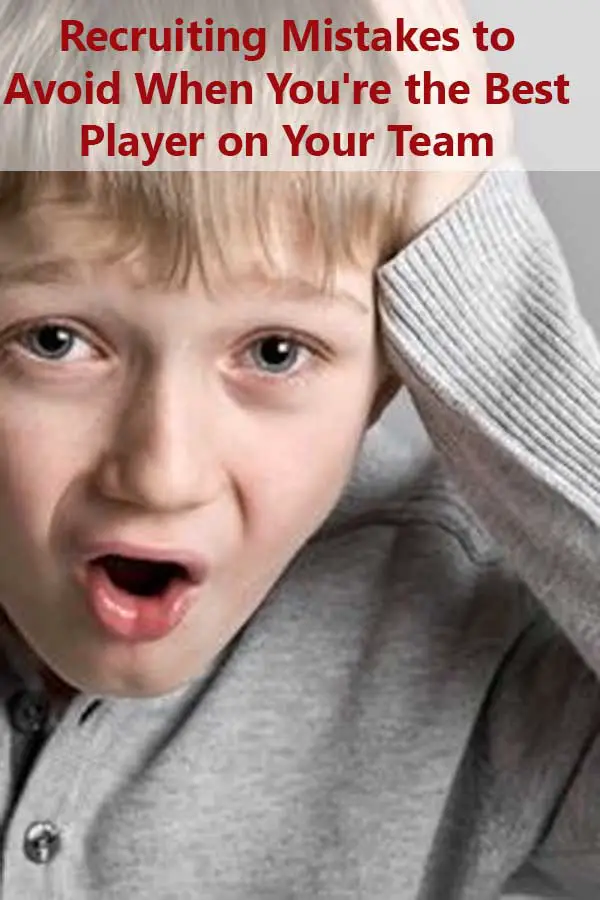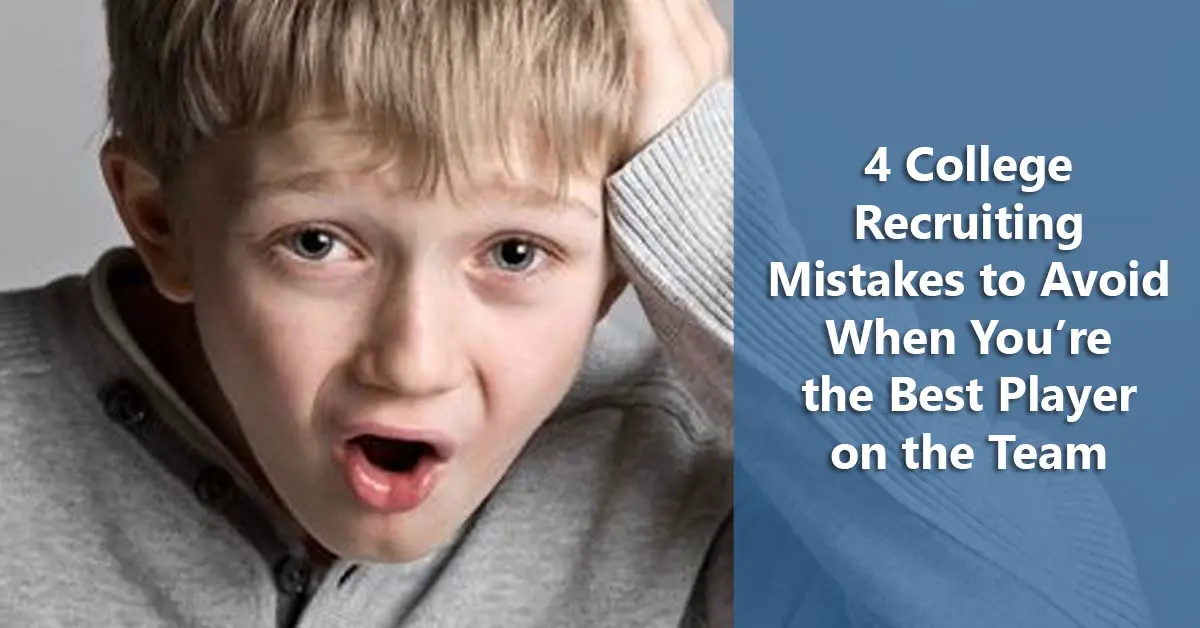 Many high school players and their families believe that being the best player on their teams is their ticket to playing at the college level. The truth is that star high school athletes are likely to make some assumptions about their ability that will undermine their chances of playing in college. Here are four college recruiting mistakes based on assumptions of talent that you must avoid.
Many high school players and their families believe that being the best player on their teams is their ticket to playing at the college level. The truth is that star high school athletes are likely to make some assumptions about their ability that will undermine their chances of playing in college. Here are four college recruiting mistakes based on assumptions of talent that you must avoid.
Instant Free Comprehensive
College Recruiting Checklist Download!
1. The player and/or the family thinks the player is actually better than he or she is.
Players in sports where wins are measured by time or distance generally have a pretty accurate view of their ability. After all, they only have to compare their numbers with those posted by college teams. It’s more difficult for everyone else and a common source of college recruiting mistakes.
Players need to take every opportunity available to have themselves evaluated by different coaches against different players. It’s an easy college recruiting mistake to fall into the trap of believing that you can judge your ability because you have played other teams and haven’t seen anyone as good as you. Unless you play the equivalent of post-season championship games on a regular basis, this is a dangerous assumption.
Players need to know how they match up by the common physical standards for their sport and position. Are they smaller than the average D1 player or have lower general stats? These by themselves don’t necessarily indicate an athlete’s true ability. However, it will be a perception that the athlete will have to work to overcome.
The best thing an athlete can do is to get an evaluation by someone who knows nothing about him or the “quality” of his league or conference.
2. You’re good enough to make up for poor grades.
Underestimating the importance of grades and test scores is a common college recruiting mistake. Your grades may have been good enough in high school to keep you competing but that’s not necessarily going to be the case in college. If you’re looking for a scholarship, you have to meet minimum academic standards. These are NCAA/NAIA rules, the coaches can’t make an exception for you because you are just that good. If you can’t meet the standards, it doesn’t matter how good you are.
And remember, some conferences have even stricter standards for their conference. There just aren’t that many coaches out there running out of potential recruits–if you don’t have the academic qualifications, they simply go to the next recruit.
3. You think that you’re good enough for the coaches to find you.
This college recruiting mistake appeared in my list of general college recruiting mistakes. I’m including it again because too many athletes believe that because they are stars on their teams, they obviously have the ability needed to play at the college level and coaches will be falling all over themselves to recruit them. I covered the numbers issue previously. This time I want to talk about the ability aspect.
Let’s assume that you are really as good as you think you are. Are you that much better than the other players that are taking the initiative to contact the coaches that you think should be recruiting you? Think about it. The coach can recruit a player who has contacted him, provided him with the appropriate recruiting material, and shows interest in his school. Or the coach can go scouring high school reports for a player who might have the ability to play but hasn’t shown any interest in the coaches’ school or might not even meet the minimum academic requirements. Which do you think is easier for the coach?
4. Assume they’ll be recruited because they’re better than other athletes being recruited.
When star athletes see players of lesser ability being recruited, they often think that “if Joe is being recruited, there are going to be plenty of colleges that want me.” To begin with, if a player is truly that much better than Joe, those colleges aren’t going to look at you and say, “why are we wasting time with Joe?” They assume that you’ll be playing at a different level and won’t waste their recruiting efforts on you. I guess you could consider this a compliment but I suspect most players would rather be recruited than complimented.
Furthermore, you really don’t know how other coaches are rating Joe’s ability, especially to play a position different than yours. Joe may also have some technique the coach prefers for his players or had a great showing at a showcase or camp that you didn’t attend. It could also be that coaches find Joe easier to recruit because of his grades and he has let the coach know he’s interested in playing for him.
Next, we’ll look at financial mistakes in the recruiting process.
If you like this article, please share it!
CONNECT WITH OTHER PARENTS WITH PROSPECTIVE COLLEGE ATHLETES
JOIN THE COLLEGE RECRUITING PARENT ZONE



Great perspective offered, Michelle.
What I’ve learned talking to college baseball coaches as of late is one of the top questions they ask and want to know is, “Does the kid have the grades?” and “Is he a good person?”
It’s amazing how important personhood and character play into the whole recruiting process and can even be what seals the deal, whether it’s for a coach to decide to pursue a player or someone else with fewer skills but stronger character and grades.